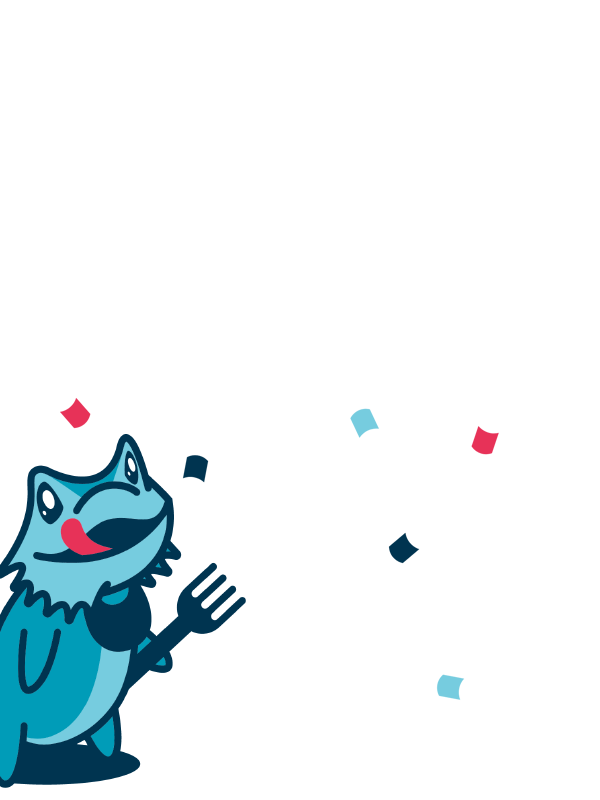Calcium is really important in your bearded dragon’s diet. It supports healthy bones, muscles, and tissues. Without sufficient calcium, your dragon can suffer from a life-threatening condition called metabolic bone disease. Because of this, responsible Dragon Keepers want to learn all they can about providing a healthy, calcium-rich diet for their reptile. And naturally, a lot of people wonder if cheese is a good source of calcium for bearded dragons. Can bearded dragons eat cheese?
The answer is a resounding NO. Bearded dragons cannot have cheese or any dairy, for that matter. Sure, it’s a great source of calcium for people who don’t have an allergy or lactose intolerance. But for bearded dragons? Dairy is a digestive nightmare!
Why Can’t Bearded Dragons Have Cheese or Dairy?
Indigestible. Long story short: reptiles are lactose intolerant! Unlike mammals, reptiles are not born with the enzymes necessary to digest dairy products. Bearded dragons do not lactate and their young do not drink milk. Because they simply cannot digest dairy, it can only result in harm, ranging from mild to severe.
Digestive problems from dairy include:
- Bloating
- Impaction & damaged digestive tract
- Diarrhea
- Digestive problems
Too much fat. Digestive issues aside, cheese and other dairy products simply have too much fat for bearded dragons. In captivity bearded dragons run a high risk of becoming obese as it is, simply from living a less active life than they would in the wild. Introduce a fat-heavy food into the mix, and you’ve got a recipe for disaster. Too much fat can cause kidney failure, heart problems, even death.
Too much protein. In a similar vein, dairy products such as cheese have too much protein for bearded dragons. Although they do need protein from sources such as Dubia roaches, dairy has so much protein that it’s really easy to overdo it.
Too much protein can cause:
- Obesity
- Diabetes
- Liver and heart problems
Needless to say, just don’t give your bearded dragon cheese or any dairy products. It just isn’t good for them!

What to Do If Your Bearded Dragon Accidentally Eats Cheese?
If your dragon accidentally ingests cheese or any dairy products, or any food that is bad for them (such as avocados, which are toxic), there are a few things you should do:
- Stay calm
- Call your vet
- Watch for abnormal behavior
- Give your dragon a warm bath to encourage a bowel movement
- Encourage your dragon to drink water to flush the dairy out
Why Do Bearded Dragons Need Calcium?
Bearded dragons need calcium for healthy bones, muscles, and tissues. Female dragons need calcium for proper reproductive functioning.
Calcium depletion results in metabolic bone disease, which can kill your dragon.
How to Ensure Your Bearded Dragon Is Getting Enough Calcium
Cheese isn’t an option to keep your dragon’s calcium levels up—but don’t worry! There are plenty of other ways to get enough calcium in your dragon’s diet.
- Provide lots of nutritious, calcium-rich greens (such as collard greens & prickly pear). Remember to feed the right amount of greens for their age (babies need less, adults need much more).
- Avoid feeding too many foods that are low in calcium and/or high in phosphorus and oxalates. Examples include bananas, spinach, sweet potatoes, and peas.
- Dust feeder insects with calcium powder.
- Ensure your dragon gets 12 hours of UVB exposure a day. Dragons need UVB exposure in order to absorb calcium!
Takeaway: Cheese and all dairy is bad for bearded dragons. Their digestive systems are not built to handle lactose. Provide calcium-rich greens and dust feeder insects with calcium powder as part of a healthy diet.
If you have questions or would like to give feedback, please email us at team@dragonsdiet.com








